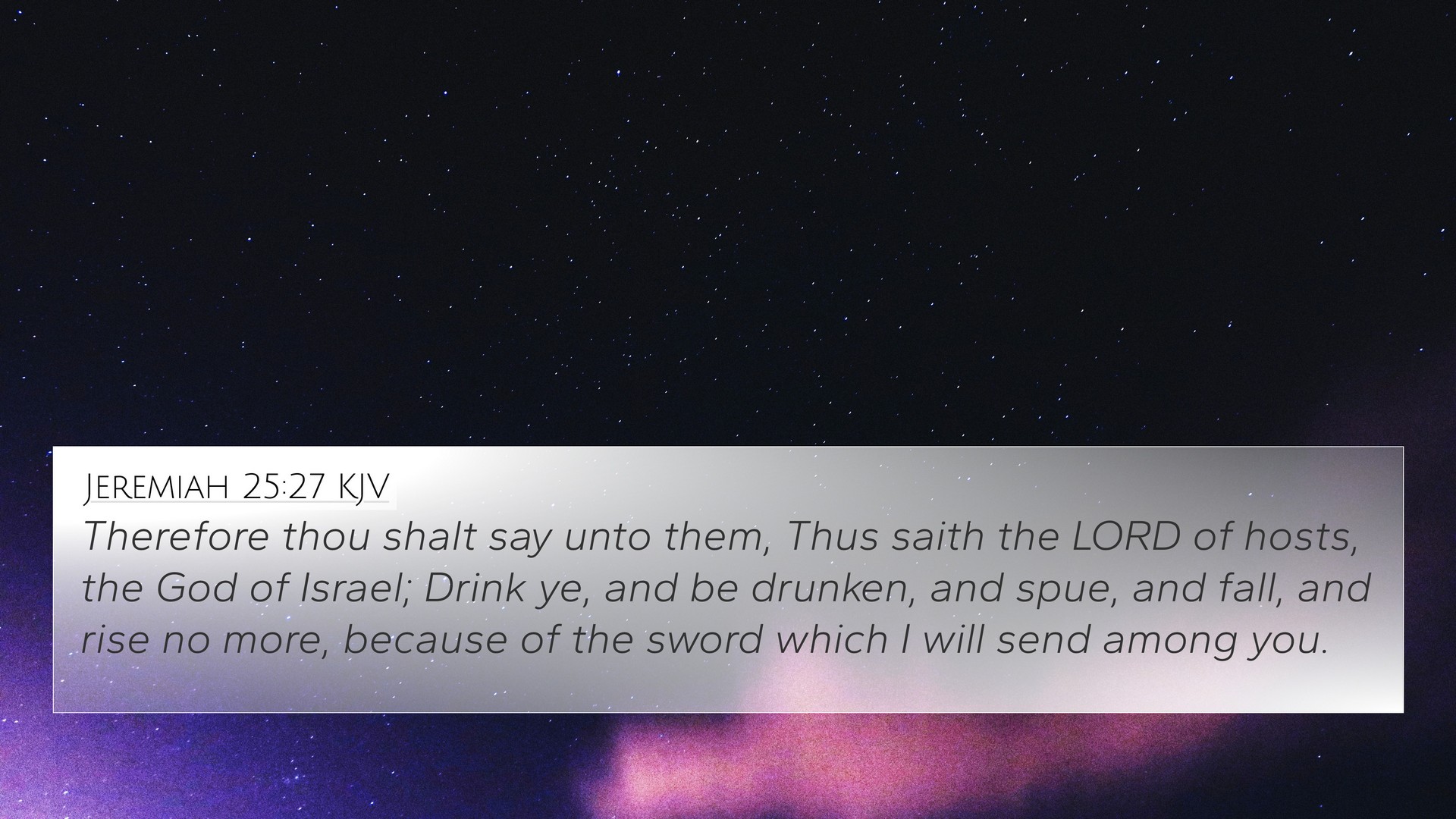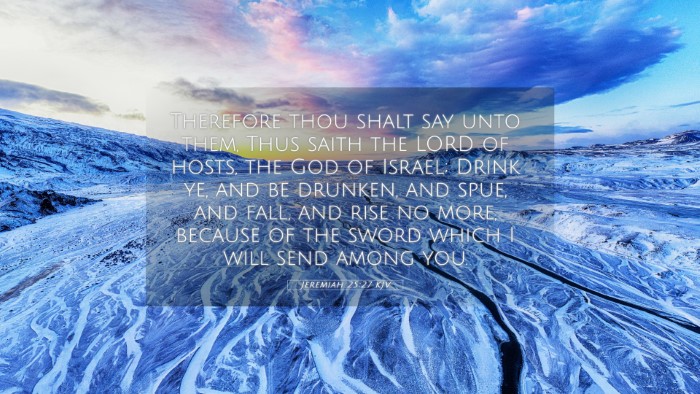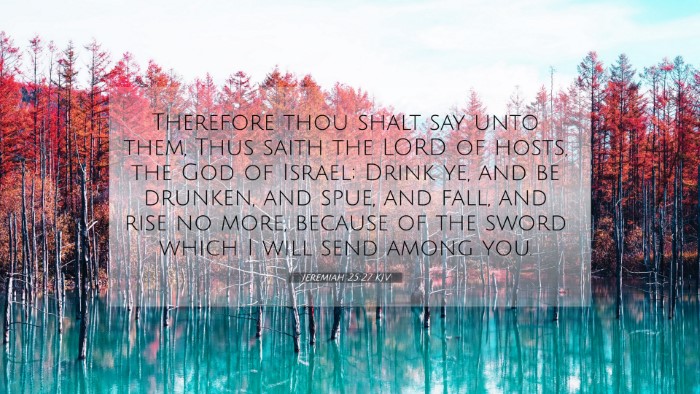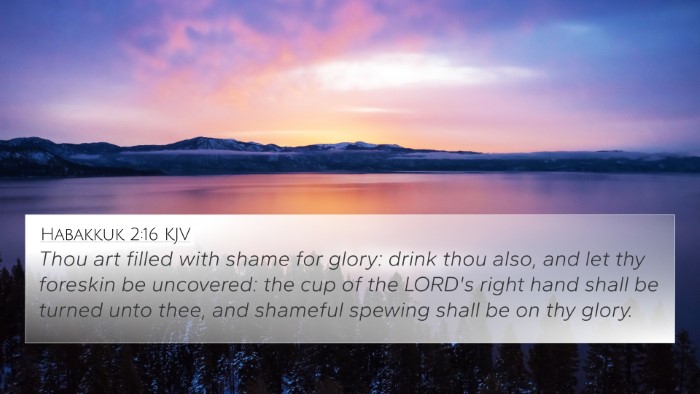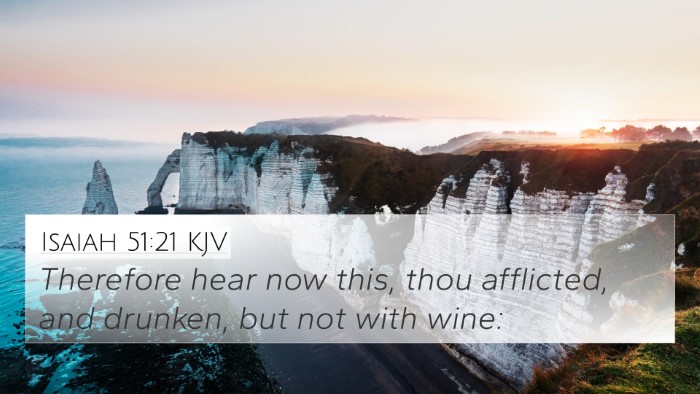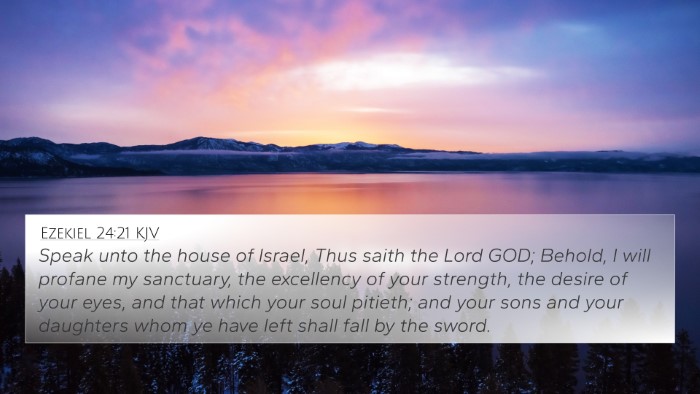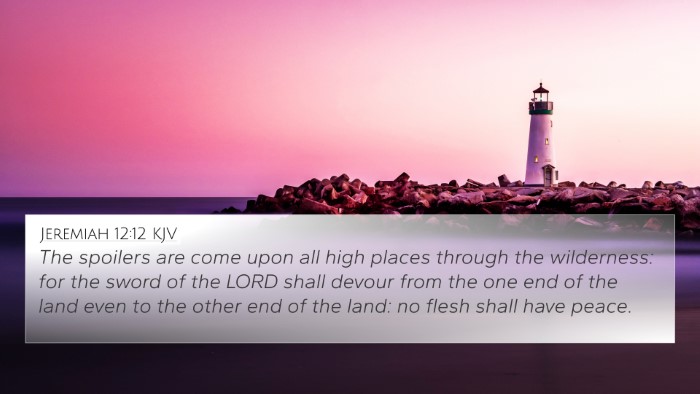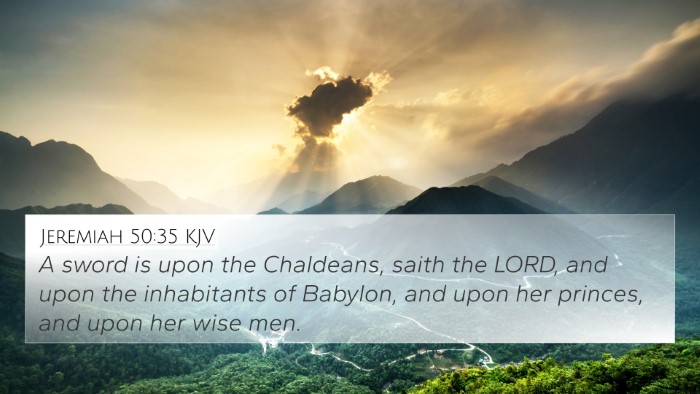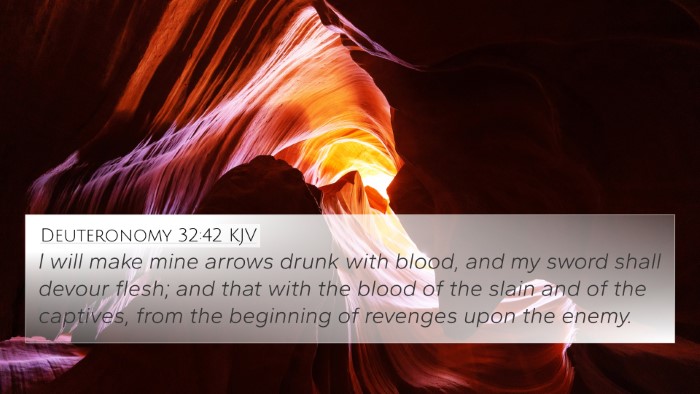Understanding Jeremiah 25:27
Jeremiah 25:27 states:
"And you shall say to them, ‘Thus says the Lord of hosts, the God of Israel: Drink, be drunk, and vomit! Fall and rise no more, because of the sword that I am sending among you.’"
This verse is situated within a prophecy where God, through Jeremiah, commands the nations to drink of His cup of wrath, symbolizing the judgment awaiting them. The imagery of drunkenness implies the overwhelming and incapacitating nature of God's judgment.
Summarized Commentary Insights
- Matthew Henry: Matthew Henry discusses how this verse illustrates the futility of resistance against divine judgment. The command to drink until drunkenness signifies the complete surrender of the nations to the consequences of their iniquities.
- Albert Barnes: Barnes brings forth the idea that the cup represents God's wrath as a divine retribution. He emphasizes the inevitable downfall of those who do not heed God's warnings, suggesting that the effects of their actions will bring about a grim fate.
- Adam Clarke: Clarke adds that the instruction to "fall and rise no more" indicates a permanent state of downfall, which denotes both physical destruction and spiritual desolation for the nations that oppose God.
Bible Verse Cross-References
This verse can be understood better by examining related scriptures:
- Psalms 75:8: "For in the hand of the Lord there is a cup, and the wine is red; it is fully mixed, and He pours it out; surely its dregs shall all the wicked of the earth drain and drink down."
- Isaiah 51:17: "Awake, awake! Stand up, O Jerusalem, you who have drunk at the hand of the Lord the cup of His fury; you have drunk the dregs of the cup of trembling and drained it out."
- Ezekiel 23:31-33: "You have gone the way of your sister; therefore I will give her cup into your hand. Thus says the Lord God: 'You shall drink of your sister's cup, the deep and wide one; you shall be laughed to scorn and held in derision; it contains much.'"
- Revelation 14:10: "He will also drink of the wine of God’s wrath, poured full strength into the cup of his anger..."
- Jeremiah 46:10: "For that day is the day of the Lord God of hosts, a day of vengeance, that He may avenge Himself on His adversaries..."
- Luke 22:42: "Saying, 'Father, if it is Your will, take this cup away from Me; nevertheless not My will, but Yours, be done.'" (Here, the cup represents suffering and divine purpose.)
- 1 Thessalonians 5:3: "For when they say, 'Peace and safety!' then sudden destruction comes upon them..." (A comparison to the false sense of security preceding judgment.)
Connections Between Bible Verses
Thematic connections can be drawn from the concept of judgment and the image of the cup that signifies divine wrath. These connections reflect the consistency of God's message regarding the consequences of sin and disobedience throughout Scripture.
Cross-Referencing Biblical Texts
In interpreting Jeremiah 25:27, one can observe:
- Thematic Bible verse connections: The recurring motif of God’s wrath in both the Old and New Testaments.
- Bible verse parallels: Linking OT prophecies of judgment with their NT realizations, especially in the context of Christ's suffering and sacrifice.
- Identifying connections between the Old and New Testament: Noting how the themes of consequence, retribution, and mercy are interwoven.
- Cross-referencing Psalms with New Testament teachings: Exploring how the Psalms echo themes of judgment that are fulfilled in Christ.
Tools for Bible Cross-Referencing
To delve deeper into cross-references and thematic studies, consider tools and resources such as:
- Bible concordance: A comprehensive alphabetical listing of words and phrases found in the Bible.
- Bible cross-reference guide: Helps trace themes and concepts across different books.
- Cross-reference Bible study: A method of studying the Bible that systematically links verses.
- How to use Bible cross-references: Understand the significance of linking thoughts across testaments.
- Bible reference resources: Various editions and tools to assist with in-depth study.
Conclusion
Jeremiah 25:27 vividly communicates the severe nature of divine judgment, calling nations to recognize the weight of their sins. Through cross-referencing various biblical texts, one can appreciate the interconnectedness of God's word and the unfolding narrative of redemption and retribution across both testaments. The study of this verse within the broader context encourages believers to reflect on God's justice, mercy, and the critical importance of adhering to His ways.
